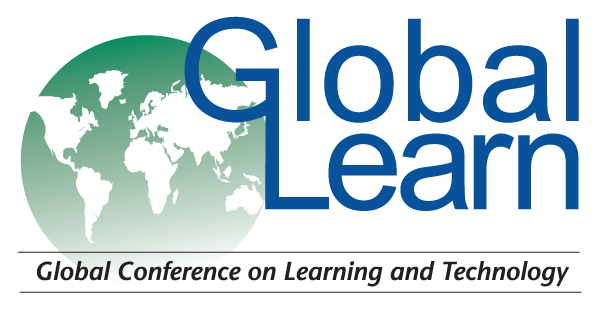
Analysing an Online Learning Community from Personal, Interpersonal and Community Planes of Development
PROCEEDINGS
Elaine Khoo, Bronwen Cowie, University of Waikato, New Zealand
AACE Award
Global Learn, in Penang, Malaysia ISBN 978-1-880094-79-2 Publisher: Association for the Advancement of Computing in Education (AACE)
Abstract
Understanding how learning communities are formed and evaluating their efficacy in supporting learning have a bearing on the facilitation of successful online learning experiences. This paper elaborates on the value of adopting a multiple planes of development (Rogoff, 1995) analytical framework to investigate the development and conduct of an online learning community. The analysis is grounded in a case study of a semester long fully online asynchronous graduate course in a New Zealand tertiary institution. Evidence is advanced that while development and change along the personal, interpersonal and community planes of development can be understood as distinct, each plane influences and mediates the other two planes. Such a framework allows for a comprehensive understanding of the active processes involved in shaping a community’s individual and collective knowledge growth. It is a useful tool for responding to the complexity and 'messiness' of real life socialcultural contexts of the online classroom.
Citation
Khoo, E. & Cowie, B. (2010). Analysing an Online Learning Community from Personal, Interpersonal and Community Planes of Development. In Z. Abas, I. Jung & J. Luca (Eds.), Proceedings of Global Learn Asia Pacific 2010--Global Conference on Learning and Technology (pp. 4222-4231). Penang, Malaysia: Association for the Advancement of Computing in Education (AACE). Retrieved August 11, 2024 from https://www.learntechlib.org/primary/p/34523/.
© 2010 Association for the Advancement of Computing in Education (AACE)
Keywords
References
View References & Citations Map- Barab, S., Kling, R., & Gray, J.H. (2004). Designing for virtual communities in the service of learning. NY: Cambridge University Press.
- Bielaczyc, K., & Collins, A. (1999). Learning communities in classrooms: A reconceptualisation of educational practice. In C.M. Reigeluth (Ed.), Instructional design theories and models (Vol. 2, pp. 269-292). Mahwah,
- Cowie, B. (2000). Formative assessment in science classrooms. Unpublished doctoral dissertation, University of Waikato, Hamilton, New Zealand.
- Jones, A.T., & Simon, S.A. (1991). Strategies for educational change: The work of the OPENS project in the context of a new national curriculum for science. Science and Mathematics Education (SAME) papers, 1535.
- Khoo, E.G.L. (2010). Developing an online learning community: A strategy for improving lecturer and student learning experiences. Unpublished doctoral dissertation, University of Waikato, Hamilton, New Zealand.
- Khoo, E., Forret, M., & Cowie, B. (2009). Developing an online learning community: A model for enhancing lecturer and student learning experiences. In Same places, different spaces. Proceedings ascilite Auckland 2009. Http://www.ascilite.org.au/conferences/auckland09/procs/khoo.pdf Lave, J., & Wenger, E. (1991). Situated learning: Legitimate peripheral participation. Cambridge: Cambridge University Press.
- Luppicini, R. (2007). Online learning communities. Charlotte, NC: Information Age.
- Ma, G. (2006). Online learning community in the context of distance education: A case study. Unpublished doctoral dissertation, Indiana University, Bloomington, USA.
- Palloff, R.M., & Pratt, K. (1999). Building learning communities in cyberspace: Effective strategies for the online classroom. San Francisco: Jossey Bass.-4230 DASHDASH
- Riel, M., & Fulton, K. (2001). The role of technology in supporting learning communities. Phi Delta Kappan, 82(7), 518-523.
- Rogoff, B. (1994). Developing understanding of the idea of communities of learners. Mind, culture, and activity, 1(4), 209-229.
- Rogoff, B. (1995). Observing sociocultural activity on three planes: Participatory appropriation, guided participation, apprenticeship. In J.V. Wertsch, P. Del R í o & A. Alvarez (Eds.), Sociocultural studies of mind (pp. 139-164). Cambridge: Cambridge University Press.
- Rogoff, B. (1997). Evaluating development in the process of participation: Theory, methods, and practice building on each other. In E. Amsel & A. Renninger (Eds.), Change and development: Issues of theory, application, and method (pp. 265-285). Hillsdale, NJ: L. Erlbaum.
- Schwier, R. (1999). Turning learning environments into learning communities: Expanding the notion of interaction in multimedia. In B. Collis& R. Oliver (Eds.), Proceedings of World Conference on Educational Multimedia, Hypermedia and Telecommunications 1999 (pp. 282-286). Chesapeake, VA:
- Sfard, A. (1998). On two metaphors for learning and the dangers of choosing just one. Educational Researcher, 27(2), 4-13.
- Vonderwell, S., & Zachariah, S. (2005). Factors that influence participation in online learning. Journal of Research on Technology in Education, 38(2), 213-230. Retrieved from Academic Search Premier database.
- Zhu, E. (1996). Meaning negotiation, knowledge construction and mentoring in a distance learning course (Eric Document 397849). Retrieved from http://eric.ed.gov/ERICDocs/data/ericdocs2sql/content_storage_01/0000019b/80/14/a1/52.pdf
These references have been extracted automatically and may have some errors. Signed in users can suggest corrections to these mistakes.
Suggest Corrections to ReferencesCited By
View References & Citations Map-
A Framework for Developing and Implementing An Online Learning Community
Elaine Khoo, University of Waikato, New Zealand; Bronwyn Cowie
Journal of Open, Flexible, and Distance Learning Vol. 15, No. 1 (2011) pp. 47–59
These links are based on references which have been extracted automatically and may have some errors. If you see a mistake, please contact info@learntechlib.org.
